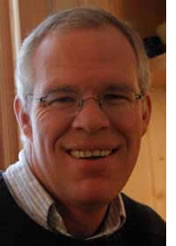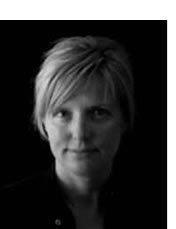|
|

|
Dr. Paul Dourish is a Professor of Informatics in the Donald Bren School of Information and Computer Sciences at UC Irvine, with courtesy appointments in Computer Science and Anthropology. He has published over 100 scholarly articles, is the author of Where the Action Is: The Foundations of Embodied Interaction (MIT Press) and coauthor with Genevieve Bell of Divining a Digital Future: Mess and Mythology in Ubiquitous Computing (MIT Press). Dr. Dourish is a former Senior Member of Research Staff in the Computer Science Laboratory of Xerox PARC, and has held research positions at Apple Computer and at Rank Xerox EuroPARC. Dr. Dourish received his Ph.D in Computer Science from University College, London. |
Talk abstract:
The Commodification of Information: Reconfiguring Social Relations in Locative Media
The arrival of locative media has brought with it a significant shift: the emergence of location as a technologically tradable object. People are mobile, but data even more so, and data about mobility is doubly implicated. Representations of location, divorced from the circumstances of their production and their contexts of interpretation, move around in the world as locative media are deployed and used. Digital location traces are traded amongst an increasingly diverse set of devices, servers, and services.
Marx argued that one of the key characteristics of the commodity form is that it displaces the value we otherwise place in social relations, which is confused for the value of the commodity itself. How, then, are social relations and their values reconfigured in a world of commodified location? I will draw from a number of recent examples to suggest some ways of thinking about location and mobility in the commodified environment of locative media.
|
|
|
 |
Dr. Rich Ling is a Professor at the IT University of Copenhagen and at Telenor’s research institute located near Oslo, Norway. He has also been the Pohs visiting professor of communication studies at the University of Michigan in Ann Arbor, and is the author of New Tech, New Ties: How Mobile Communication is Reshaping Social Cohesion (MIT Press), The Mobile Connection: The Cell Phone's Impact on Society (Morgan Kaufmann), and along with Jonathan Donner coauthored Mobile Phones and Mobile Communication. Dr. Ling has published numerous articles, held posts at and lectured at universities in Europe and the US and has participated in academic conferences around the world. Dr. Ling received his Ph.D. in sociology from the University of Colorado, Boulder. |
Talk abstract:
Mobile phones and Digital Gemeinschaft: Social cohesion in the era of cars, clocks and mobile phones
Sociology has long focused on the general drift of society towards what Weber saw as increasing rationalization and what Beniger called the Control Revolution. Today we see evidence of this tendency, for example, in the incessant drive away from handwork towards commidification and deskilling. Mobile communitation (as well as other ICTs) are clearly a link in this transition. Mobile telephony facilitates the development of massive logistical systems and the rationalization of marketing. In the midst of all this, however, mobile communication (as well as cars and clocks) mediate social interaction within what Berger and Kellner called the nomos and what Tönnes called the gemeinschaft. This paper will examine the way in which mobile communication not only facilitates these massive social transitions, but also how it is being adopted for use in the intimate sphere, in the digital gemeinschaft.
|
|
|
|
 |
Dr. Teri Rueb is Professor in the Media Study Department at the University at Buffalo (SUNY) where she is Founder and Director of Open Air Institute. Previously, she served as founding faculty of the graduate Digital + Media department at the Rhode Island School of Design, where she was later appointed Department Head. In addition to essays published in numerous collections, Dr. Rueb is an artist working at the intersection of interactive media, sound, land, and environmental art. Her work has earned numerous grants and awards, including a Prix Electronica Award of Distinction, and has been featured in prominent texts including Digital Art (Ed. Paul, Thames & Hudson) and Information Arts: Intersections of Art, Science and Technology (Ed. Wilson, MIT Press). Dr. Rueb received her Ph.D from the Harvard University Graduate School of Design. |
Talk abstract:
Restless: Locative Media as Generative Displacement
New technologies extend the senses, shift our awareness, and alter affects, perceptions and consciousnesses. In the case of locative media they do so especially with respect to the experience of place. Thus, the situatedness of place as a cultural production is a key concern for designers of locative media. Despite the flow of forces that give rise to a "sense of place," place is still commonly treated as a noun in design. Yet place is more verb than noun, more process than artifact. To design locative media requires choreographing exchanges between moving bodies, information and the environment – all of which are highly complex and volatile in nature. Just as the context of locative media is indeterminate, the subject of locative media is restless and fugitive. Constant displacement–physical, cultural and psychological–frustrates any attempt to construct a stable sense of place or context. Yet in this very instability the potential of locative media as a form of generative displacement is revealed.
|









